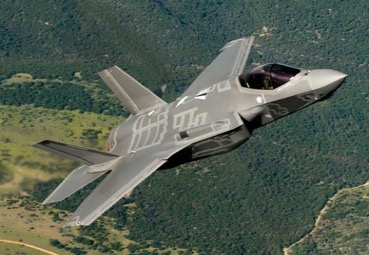U.S. Puts Hold on Export Licenses for BAE: State Dept.
The U.S. State Department has placed a “temporary administrative hold” on weapons export licenses sought by BAE Systems or companies using BAE Systems’ products, a State Department official said. BAE officials, however, said there was no hold. The state of affairs remains unclear.
This comes in the wake of BAE’s guilty plea to accusations that it conspired to defraud the United States. BAE Systems PLC pleaded guilty March 1 and agreed to pay a $400 million fine in a tangled case that involves allegations of questionable payments paid to a Saudi official, offshore “shell companies” set up by BAE to get weapons contracts, and lying about it all to the U.S. government, the U.S. Justice Department said.
The illegal activity began a quarter century ago, when BAE began selling Tornado fighter jets to Saudi Arabia in a $65 billion deal. The Justice Department said that to secure that deal, Saudi officials required BAE to provide them with “support services” that included paying travel and accommodation costs, providing security services, gifts of real estate, automobiles and personal items. Justice Department lawyers said that none of the company’s criminal conduct involved BAE Systems Inc., the U.S. division of the defense giant.
But the State Department’s temporary hold applies to BAE Systems, Inc. as well as BAE Systems PLC while the department studies the guilty plea and determines whether to take additional action against the company.
In an Internet notice posted after BAE pleaded guilty on March 1, the State Department said the hold applied to license applications where BAE Systems PLC “or any of its subsidiaries is an applicant, consignee, end user, manufacturer or source.”
In the notice, the department advised export license applicants to determine whether they could modify their applications to remove BAE products. If they could, the notice instructed license applicants to withdraw their applications and amend them. That notice was withdrawn within a day and replaced by one that did not offer advice to license applicants hoping to export BAE products.
And that notice, in turn, was withdrawn and not replaced.
“One notice Monday, another one Tuesday, and now they’re both down. Which is it, guys?” said a Washington trade lawyer. “What State has done sends a terrible message. It makes it seem like State does not have a handle on what it wants to do” – or that it’s being manipulated by outside interests.
On March 3, State Department officials said they were still determining whether to debar BAE Systems, which would limit the company’s ability to export products with U.S.-made content. “We are assessing the implications that that plea will have on statutory debarment and resulting policy of denial. No final determinations have been reached,” a March 3 department statement said.
BAE Systems, Inc. spokesman John Suttle said his company is interpreting the current absence of a State Department notice about the hold to indicate that there is none in place.
“With regard to the U.S. Department of State, we understand that there has been no change to existing export licenses and agreements and that export activities may continue under existing authorizations. We look forward to further engaging with the State Department to resolve any remaining issues,” Suttle said.
DOJ: A $200M COVERUP
The Justice Department said that “from May 2001 onward,” BAE paid 135 million pounds ($203 million) and more than $14 million to a shell company in the British Virgin Islands, “even though in certain situations BAE was aware there was a high probability that part of the payments would be used to ensure that BAE was favored in foreign government decisions regarding the purchase of defense articles.”
Part of the U.S. objection to the BAE payments apparently was that they undermined the ability of U.S. companies to compete, arms trade experts said.
From 2000 to 2002, BAE promised the U.S. government that it would put in place policies to ensure its compliance with anti-bribery provisions of the Foreign Corrupt Practices Act and other anti-bribery laws, the Justice Department said.
But “BAE knowingly and willfully failed to create mechanisms to ensure compliance with these legal prohibitions on foreign bribery,” the department said.
For BAE, the machinations proved bountiful.
“The gain to BAE from various false statements and failures to make required disclosures to the U.S. government was more than $200 million,” the department reported.
In addition to violating the Foreign Corrupt Practices Act, BAE violated the U.S. Arms Export Control Act and the International Traffic in Arms Regulations, the department said.
By WILLIAM MATTHEWS and Antonie Boessenkool – Defense News

